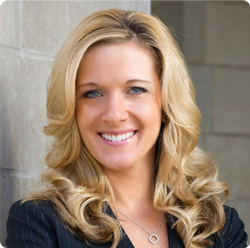We have just reached the conclusion of a 5 week season of Focus Groups, with two on each Sunday and one mid-week, and I would like to share my reflections at this critical stage.
Let me begin by saying that this is my third time in a major church facility and Capital Campaign process as a pastor. From learning of the “Klote process” at our first meeting with Jim, the highly relational approach to raising funds appealed to me, and does so even more. A good campaign of any form builds not only buildings, but the body of Christ – I have seen this happening. But in none of my congregations have I seen this more clearly displayed than in the focus group just completed. Here’s what I have observed:
When a congregation develops a plan through a committee, and then has the plan approved by the Session (the governing board), and then presents it at a large congregational meeting for approval, a myriad of relationships, insights and opportunities are overlooked.
- CLARITY: It is very hard in a large meeting to get a clear answer to particular questions without one person seeming to “hog the time” with follow up questions. These follow up questions are actually often essential, not only for the questioner, but for others, but the format militates against them, especially when there are many others waiting with their own questions.
- INSIGHTS: In a large group setting, it is hard to make suggestions for improvements without “messing up the clarity of the motion!” Meetings can get confusing very quickly if the door is open to amendments to a plan, so the vote necessarily needs to be “up or down.” The reality, though, is that any proposed plan remains contingent on the raising of resources, so the vote itself does not reflect reality – and allows no room for nuance. Indeed, some truly excellent suggestions can get sidelined because the format often unintentionally allows no room for them to be treated seriously.
- FURTHER FEEDBACK: once a vote is taken, even if the way is open to further comments and improvements after a big meeting, only a very few people will remember to do make their comments. The sense of fait accompli is huge, and so the insight of multiple people who necessarily could not all be on a planning team is lost.
- NEGATIVITY. Only a few people tend to speak at a congregational meeting, and if one of those is a well-spoken opponent of the proposal, or even of a small part of the proposal, then the power of the negative, though it may be the voice of a very small minority, becomes enormous. In my experience, it become very hard for a more positive voice to speak up in a large setting after a negative voice: the tone will unintentionally, but invariably, sound defensive, and many people can leave feeling uneasy, and perhaps asking, “what is it that we are missing or do not know? Is there something going on in the background?”
- ATTENDNACE: It is often hard to know who exactly attends a congregational meeting, and harder to have attendees complete and return any kind of questionnaire.
HOWEVER, these kinds of issues can all be taken into account and dealt with in a caring manner for large numbers of people in the Klote approach in which a plan is “socialized” in a small group setting
- with 5-50 people, rather than a few hundred
- that can be attended once or more over a period of a month or two, with time to reflect
- where there is no great pressure that impacts clear thinking, because a vote is now not needed by the end of the meeting
- where repeated opportunities for clarification are made available in the presentation, in question periods, in after-meeting follow up, and in the completion of questionnaires
- where negative voices can be heard – but not in a way that dominates everyone’s opinion, and can be counteracted by other lay persons who often would be far too timid to speak up in a larger setting
- where people with negative voices can be met after a meeting by the pastor or consultant who can provide appropriate active listening and clarification so that the person feels heard and cared for, and their true concerns, often masked in frustration or anger, recorded
- where valuable insights, both positive and negative can be voiced by dozens of people, and taken into account to modify the plan appropriately, so that there is significant broader ownership
- where quiet and faithful members express passions for their church never previously heard
- and where the church functions relationally as a community at work and prayer
I have watched all of these things happen over the last 5 weeks, repeatedly, and feel that the strengthening of the church that has already taken place has been invaluable in and of itself.
Senior Pastor
The National Presbyterian Church
Washington, DC



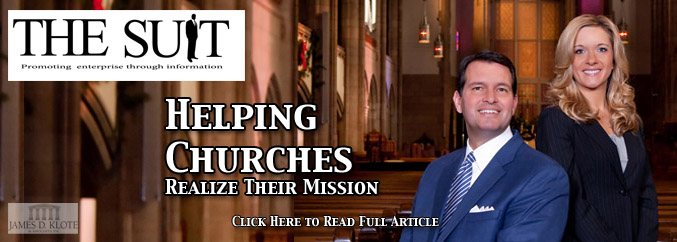

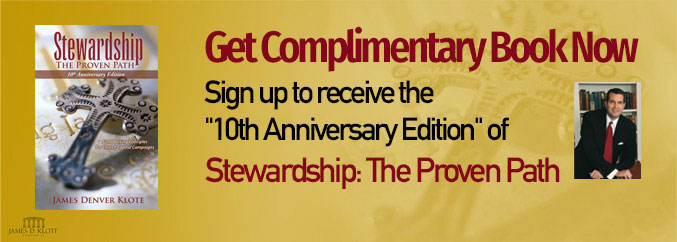


 703-399-0518
703-399-0518  info@jdklote.com
info@jdklote.com 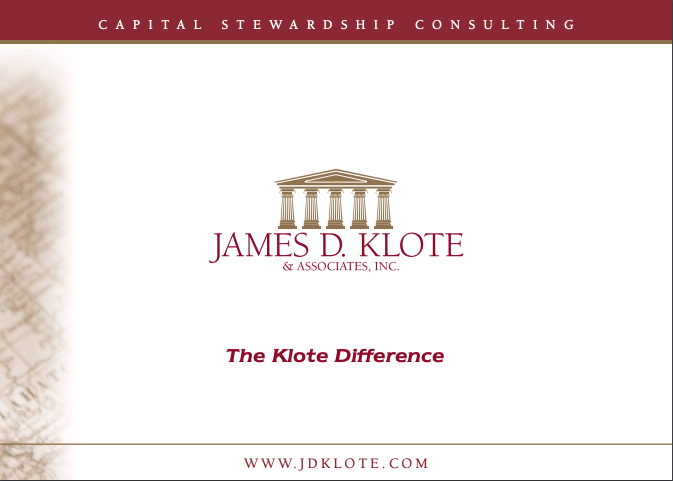
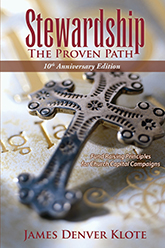
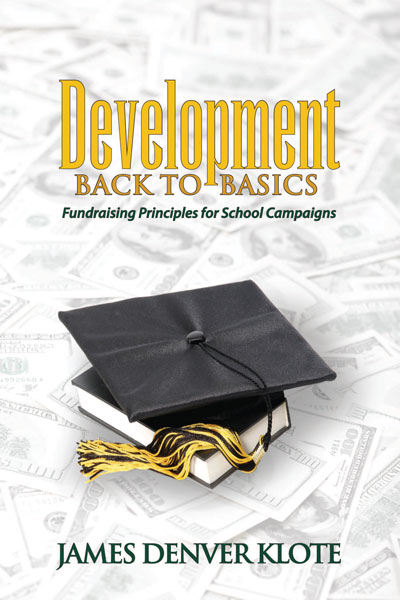

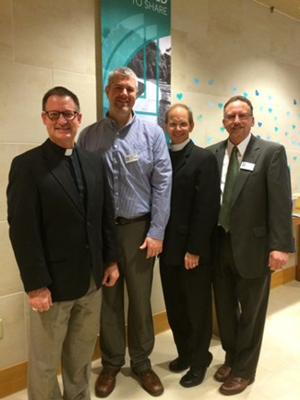 Carmel Lutheran Church kicked off its ‘Hearts Compelled To Share’ capital campaign in record style. As of January 25th just 73 families of the more than 900 in the church had already committed $3.75 million dollars. That total represents not only the best kickoff to a campaign at CLC, it also represents the best campaign in total even though only 8% of the congregation has pledged so far.
The previous best campaign was just four years ago when CLC collected a total of about $3 million in pledges from over 425 donors.
Carmel Lutheran Church kicked off its ‘Hearts Compelled To Share’ capital campaign in record style. As of January 25th just 73 families of the more than 900 in the church had already committed $3.75 million dollars. That total represents not only the best kickoff to a campaign at CLC, it also represents the best campaign in total even though only 8% of the congregation has pledged so far.
The previous best campaign was just four years ago when CLC collected a total of about $3 million in pledges from over 425 donors.
 "Jim Klote, president of James D. Klote and Associates, a capital stewardship consulting firm based in Fall Church, VA, appears on the big screen during his "All Things New" presentation at this year's Annual Conference session. Klote and Associates will conduct free stewardship education workshops for churches in all 18 districts of the conference this fall.
"Jim Klote, president of James D. Klote and Associates, a capital stewardship consulting firm based in Fall Church, VA, appears on the big screen during his "All Things New" presentation at this year's Annual Conference session. Klote and Associates will conduct free stewardship education workshops for churches in all 18 districts of the conference this fall.
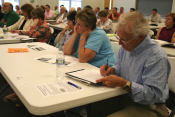 Participants listen attentively during the church stewardship workshop at Wright's Chapel UMC.The Virginia Conference sponsored series of stewardship workshops in each district is winding down, with two more district gatherings remaining in November.
Participants listen attentively during the church stewardship workshop at Wright's Chapel UMC.The Virginia Conference sponsored series of stewardship workshops in each district is winding down, with two more district gatherings remaining in November.
